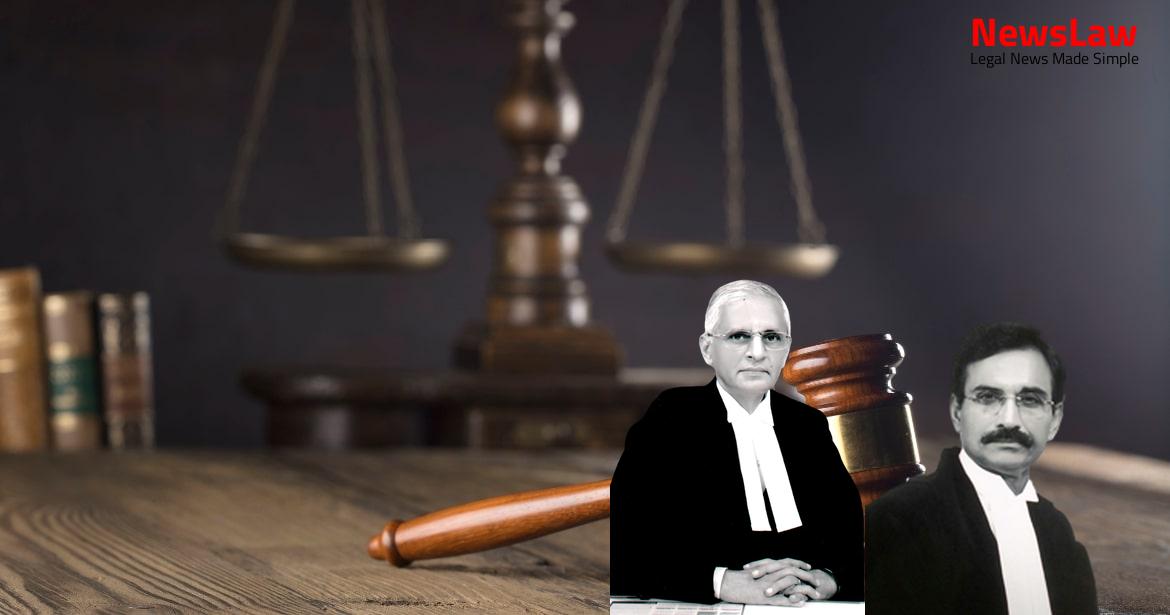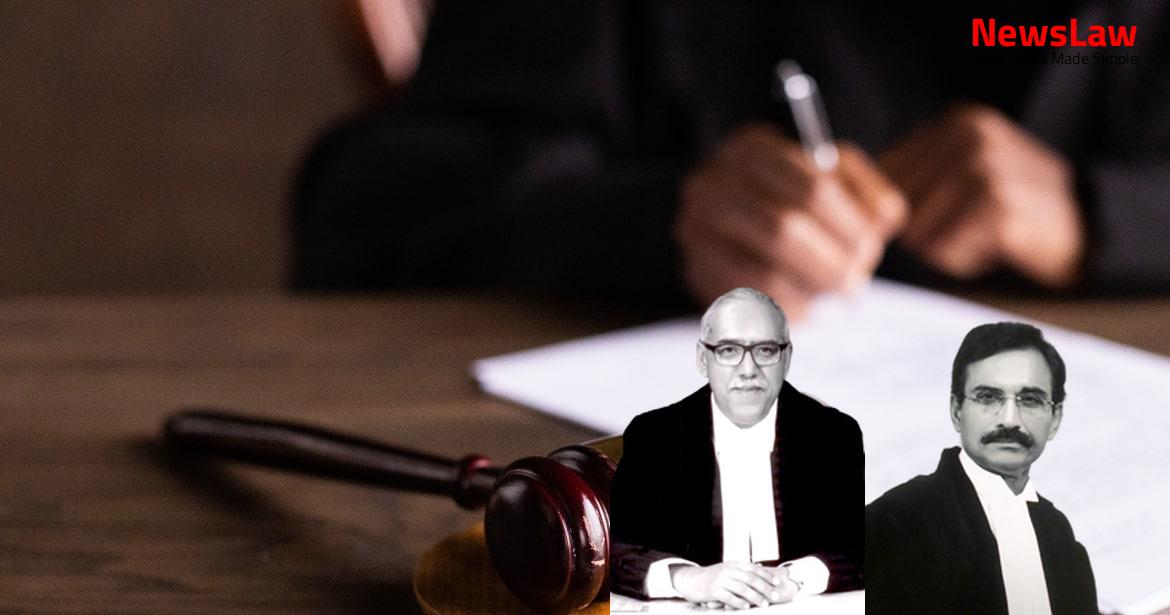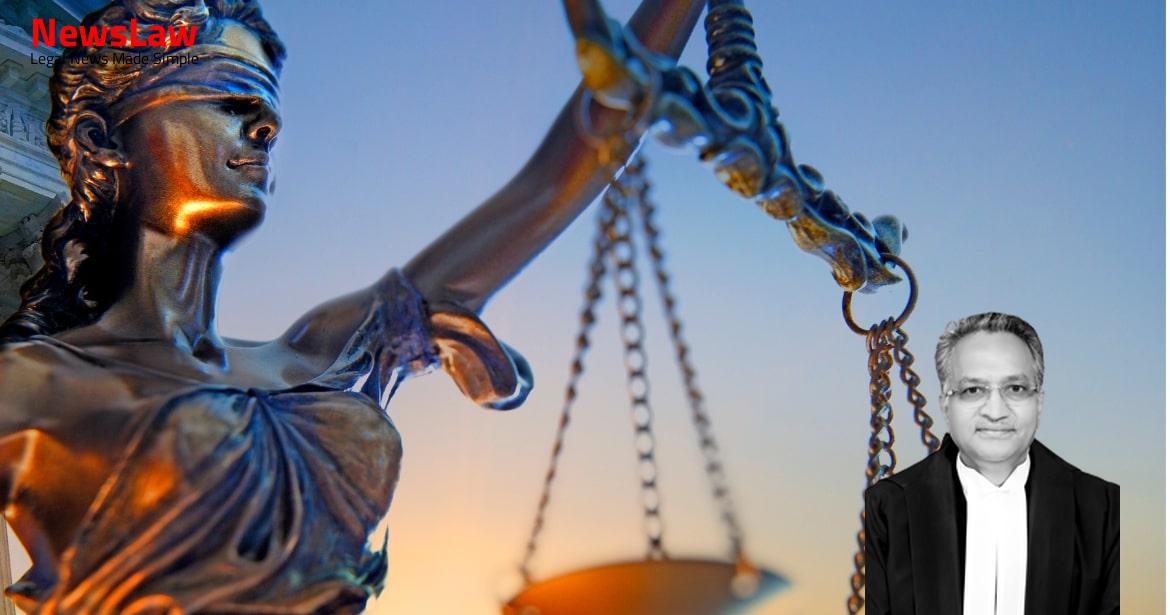Explore the legal analysis and considerations surrounding the Governor’s discretion in sentence remission. Delve into the complexities of State Cabinet recommendations and the Governor’s role in decision-making. Uncover the key points of contention and legal precedents shaping this case.
Facts
- The Appellant filed a mercy petition before the President of India under Article 72 of the Constitution, which was rejected on 12.08.2011.
- Notice was issued in Crl. M.P. No 118421 of 2017 seeking suspension of sentence.
- The Appellant’s mercy petition was reconsidered by the Governor on 25.04.2000 and was rejected again.
- The review petition filed by the Appellant was dismissed on 08.10.1999.
- A writ petition was filed in the High Court of Madras, challenging the rejection of the mercy petition.
- The Appellant was accused No.18 in Crime No. 329 of 1991 for the assassination of Shri Rajeev Gandhi on 21.05.1991.
- The Appellant was convicted for various offences under the IPC, Arms Act, Explosive Substances Act, and other laws.
- Mercy petitions filed by the Appellant before the Governor of Tamil Nadu were rejected on 27.10.1999.
- The petition was dismissed by the TADA Court on 10.12.2013, leading to an appeal filed in the High Court.
- Appeals were filed against the orders passed by the High Court on 06.03.2015.
- A criminal original petition was filed to expedite the pending investigation and file status reports regularly.
- A criminal miscellaneous petition was filed before the designated TADA Court on 04.02.2021 for effective monitoring of the pending investigation.
- An affidavit by the Deputy Secretary, Ministry of Home Affairs, stated that the Governor determined a certain issue on 25.01.2021.
- The CBI filed an affidavit informing the Court that no request had been made by the Governor seeking a report.
- Order of status quo passed by the Court on 20.02.2014.
- Appellant’s sentence remission recommendation awaited pending final report from MDMA.
- High Court informed about Governor’s decision delay on remission recommendation.
- High Court dismissed petitions on 06.03.2015 suggesting appeal to Supreme Court.
- Conviction and sentence upheld by the Court on 11.05.1999, TADA conviction set aside.
- Union of India filed writ petition to quash sentence commutation decision.
- Writ petition referred to Constitution Bench on 25.04.2014.
- Seven questions formulated for consideration in the case.
- Appeal under Article 161 of the Constitution for remission filed on 30.12.2015.
- Review Petitions against sentence commutation dismissed.
- Appellant released on bail on 09.03.2022 due to long imprisonment, good conduct, qualifications, and ill health.
Also Read: Regulation of Capitation Fees in Private Medical Colleges
Arguments
- The Appellant’s argument is that the State Cabinet’s recommendation for remission should have been decided by the Governor, not referred to the President.
- The State of Tamil Nadu supports the Appellant’s argument, stating the Governor is bound by the decision of the Cabinet of Ministers.
- The Additional Solicitor General of India argues that the Union of India is the appropriate Government for matters of remission/commutation, and the Governor cannot refer the Cabinet’s recommendation to the President.
- Reference was made to a judgment stating that only the President of India can grant pardon or remission under Article 161, not the Governor.
- It was emphasized that the Governor has no power to grant pardon under Article 161 and must act on the advice of the Council of Ministers.
- The Governor could have asked the State Cabinet to reconsider, but did not have the authority to refer the recommendation to the President.
- The offence under Section 302 IPC is related to ‘public order’ and falls under the exclusive domain of the State.
- The counsel for the respondent argued that the Governor rightly referred the recommendation made by the State Cabinet to the President of India for the remission/commutation of the appellant’s sentence.
- The respondent contended that the Governor is not always bound by the advice of the Council of Ministers and can act in his own discretion in certain recognized exceptions.
- Citing a judgment in M.P. Special Police Establishment v. State of M.P., it was argued that the Governor can act in his own discretion when the bias of the Council of Ministers is apparent or if their decision is irrational and based on non-consideration of relevant factors.
- The respondent disagreed with the preliminary objection raised by the learned Additional Solicitor General that the point regarding the reference to the President of India is beyond the scope of the appeal, stating that the point must be considered in these appeals.
- The appeals specifically address the correctness of the Governor’s reference to the President of India without deciding on the recommendation of the State Cabinet for remission of the appellant’s sentence.
Analysis
- The Governor is bound by the advice of the State Cabinet in matters relating to commutation/remission of sentences under Article 161.
- Inexplicable delays in deciding on recommendations under Article 161, not caused by the prisoner, are unacceptable as they worsen the physical and mental well-being of the prisoner.
- The Governor’s power to refer a recommendation made by the State Cabinet to the President of India under Article 161 is not clear and should not be used in a case where the State Cabinet has already made a decision to release a prisoner.
- The judgment in M.P. Special Police Establishment regarding the Governor’s discretion to examine irrational Cabinet decisions does not apply to this case as no apparent bias or irrelevant considerations were raised against the State Cabinet.
- The delay in decision-making regarding the recommendation for remission of sentence, especially when the State Cabinet has recommended release, can be detrimental to the prisoner’s rights and well-being.
- The executive power of the State extends to matters within the jurisdiction of the State Legislature.
- The State Government holds exclusive authority over certain offences.
- The power to grant pardons, etc., for offences within the State’s executive power lies with the Governor.
- The determination of executive power between the Union and State Governments depends on specific provisions in the Constitution or laws made by Parliament.
- The appropriate Government status depends on the order of sentence and specific Executive Powers conferred.
- In cases not falling under specific Executive Powers, the State Government is the appropriate authority.
- The Court held that while the usual process for sanction for prosecution involves the aid and advice of the Council of Ministers, an exception may arise when prosecuting a Chief Minister or a Minister.
- In this case, the Lokayukta’s report favored prosecution of two Ministers under the Prevention of Corruption Act, but the Council of Ministers found no material for granting sanction.
- Despite the Council’s decision, the Governor granted sanction based on a prima facie case, as he believed the Council failed to consider relevant facts.
- The Court emphasized that administrative orders can be vitiated if relevant facts are ignored, allowing the Governor to act in his discretion in such cases to maintain the rule of law.
- Citing previous cases and legal provisions, the Court highlighted the Governor’s role as shorthand for the State Government and the need for exercising powers in accordance with the advice of the ministers.
- The High Court allowed writ petitions of the Ministers, stating the Governor cannot act against the Council’s advice, a decision upheld by the Division Bench and appealed before the Supreme Court.
Decision
- The Appellant’s bail bonds are cancelled.
- The Appellant, who was on bail, is set at liberty forthwith.
- The Appeals are disposed of accordingly.
- Considering the Appellant’s prolonged incarceration, satisfactory conduct in jail and during parole, chronic ailments, educational qualifications acquired during incarceration, and the pendency of the petition under Article 161 for two and a half years, the matter is not remanded for the Governor’s consideration.
Case Title: A.G. PERARIVALAN Vs. THE STATE OF TAMIL NADU STATE THROUGH SUPERINTENDENT OF POLICE AND ANR. (2022 INSC 588)
Case Number: Crl.A. No.-000833-000834 / 2022



